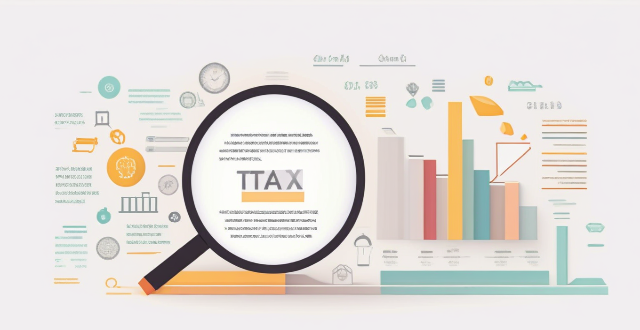Capital Bonds

How can green bonds help finance climate-friendly projects ?
Green bonds are financial instruments that raise capital specifically for climate and environmental projects. They offer increased funding opportunities by attracting a diverse investor base interested in sustainable investing, aligning with ESG criteria, and providing attractive returns. Transparency and accountability are ensured through rigorous certification processes, third-party reviews, and reporting requirements. Green bonds also catalyze climate action by incentivizing sustainable practices and supporting innovation in clean technology. Furthermore, they encourage wider market participation through investor education, public awareness campaigns, policy support, and international collaboration. Overall, green bonds are crucial for financing climate-friendly projects and accelerating the transition to a more sustainable economy.

What is the difference between a bond and a stock ?
Bonds and stocks are two different types of financial instruments that companies use to raise capital. While both are used for funding, they have distinct differences in terms of ownership, returns, risks, and other factors. Here are some key differences between bonds and stocks: - Bonds represent debt and provide regular interest payments with a fixed maturity date, while stocks represent equity and offer potential dividends and capital appreciation without a set maturity date. - When you buy a bond, you are essentially lending money to the issuer (usually a company or government). In return, you receive a bond certificate that represents your loan. You do not own any part of the company; you are simply a creditor. - When you buy a stock, you become a part owner of the company. This means you have a claim on the company's assets and earnings, as well as a say in how the company is run through voting at shareholder meetings. - The primary return from owning a bond comes from interest payments made by the issuer. These payments are usually fixed and paid at regular intervals until the bond matures, at which point the principal amount is repaid. - The return on stocks comes from dividends (if the company chooses to pay them) and capital gains (the increase in the stock price over time). Stock prices can be volatile, so the potential for high returns is greater than with bonds, but so is the risk. - Generally considered less risky than stocks because they offer a fixed rate of return and have priority over stockholders in the event of bankruptcy. However, there is still risk involved, especially if the issuer defaults on its payments. - More risky than bonds because their value fluctuates with market conditions and the performance of the underlying company. If the company does poorly, the stock price may fall significantly, and investors could lose part or all of their investment. - Have a defined maturity date when the principal amount must be repaid by the issuer. This provides a clear timeline for investors. - Do not have a maturity date; they exist as long as the company remains in business. Investors can sell their shares at any time in the open market. - Interest income from bonds is typically taxed as ordinary income. - Long-term capital gains from stock sales may be taxed at a lower rate than ordinary income, depending on the tax laws of the jurisdiction.

Are green bonds a profitable investment compared to traditional bonds ?
Green bonds are a type of fixed-income security designed to finance environmentally friendly projects. While their risk and return profile can be similar to traditional bonds, green bonds offer potential diversification benefits, alignment with sustainability goals, and possibly tax benefits. However, their long-term performance relative to traditional bonds depends on various factors such as interest rate changes and market sentiment. Green bonds often come with more rigorous reporting requirements to ensure the proceeds are used for environmentally friendly projects. Whether green bonds are more profitable than traditional bonds cannot be definitively answered without considering individual investment goals and market conditions.

How does the issuance of green bonds benefit environmental projects ?
Green bonds are financial instruments designed to fund environmentally friendly projects, offering benefits such as increased funding opportunities, improved project visibility, long-term financing, risk mitigation, market growth and innovation, policy and regulatory support, and community and environmental impact. These bonds not only benefit the specific environmental projects they aim to fund but also contribute to a broader shift towards sustainable finance and environmental stewardship.

What role do governments play in promoting the use of green bonds ?
Governments play a crucial role in promoting the use of green bonds by providing incentives for issuance, establishing regulations and disclosure requirements, issuing their own green bonds, and promoting education and awareness campaigns. These actions help accelerate the transition to a more sustainable economy and address pressing environmental challenges facing our planet.

Can green bonds help fight climate change effectively ?
Green bonds, a type of fixed-income instrument, are issued to fund environmentally friendly projects that aim to reduce greenhouse gas emissions and promote sustainable development. They can effectively contribute to the fight against climate change by incentivizing renewable energy projects, supporting energy efficiency and conservation, investing in low-carbon infrastructure, promoting sustainable agriculture and forestry, and advancing research and development. However, challenges such as ensuring transparency and accountability, achieving scale and impact, integrating with broader climate strategies, and engaging diverse investors must be addressed to fully realize their potential. As the market for green bonds grows, they remain an important tool in combating climate change effectively.

What are the different types of bonds available for investment ?
This text discusses the different types of bonds available for investment. It explains the characteristics and subtypes of corporate, municipal, government, mortgage-backed securities, asset-backed securities, zero-coupon, floating rate, inflation-protected, perpetual, international, taxable vs. tax-exempt, secured vs. unsecured, callable vs. non-callable, registered vs. bearer, fixed rate vs. floating rate, strip, synthetic, private placement, structured, green, and supranational bonds.

Is it better to invest in stocks or bonds for retirement ?
The article discusses the advantages and disadvantages of investing in stocks and bonds for retirement. Stocks offer higher potential returns, diversification, and can serve as an inflation hedge, but come with higher risks and no guaranteed income. Bonds provide lower risk, predictable income streams, and diversification, but offer lower potential returns and are sensitive to interest rate changes. The key is finding the right balance between risk and reward based on individual circumstances and investment goals, and consulting with a financial advisor to create a customized retirement plan.

What is the risk involved in investing in bonds ?
Investing in bonds carries risks such as interest rate, credit, inflation, liquidity, reinvestment, call, prepayment, foreign currency, and political/regulatory changes. Understanding and managing these risks is crucial for protecting your investment. Diversifying your portfolio across different types of bonds and monitoring market conditions can help mitigate these risks.

What are the tax implications of receiving venture capital investment ?
Receiving venture capital investment can have significant tax implications for a startup company, including the treatment of investment proceeds as ordinary income and potential valuation issues. Tax credits and incentives may be available, and exit strategies should be evaluated for their tax consequences. Additional accounting and reporting requirements may also arise. It is important to work with a qualified tax professional to ensure compliance with tax laws and maximize the benefits of venture capital investment.

Why are green bonds important for sustainable development ?
Green bonds are crucial for sustainable development as they provide funding for environmental projects, broaden investor base, support environmental standards, stimulate innovation, advance global SDGs, and raise awareness about sustainability in finance.

What role do green bonds and other financial products play in climate financing ?
Green bonds and other financial products are crucial for climate financing, enabling investors to support environmentally friendly projects. These instruments fund renewable energy, energy efficiency, waste management, biodiversity conservation, and other eco-friendly initiatives, contributing to climate change mitigation and sustainable development. Key features of green bonds include transparency and verification, offering benefits such as attracting capital and pricing advantages but facing challenges like standardization and secondary market liquidity. Other financial products include climate-themed investment funds, CERs, green loans, and credit facilities, which directly finance green projects and stimulate innovation in sustainable practices. By aligning financial returns with environmental benefits, these instruments play a vital role in mobilizing private capital towards climate action, helping to bridge the funding gap for sustainable projects and mitigate climate change.

How can green bonds help finance environmentally friendly projects ?
Green bonds are a type of financial instrument designed to raise capital for environmentally friendly projects. They offer dedicated funding sources, attract sustainability-focused investors, enhance corporate reputation, and potentially lower borrowing costs. Examples of projects funded by green bonds include renewable energy development, energy efficiency upgrades, sustainable water management, clean transportation, and waste management. As awareness of climate change grows, the use of green bonds is expected to expand, driving progress towards a more sustainable future.

What are the key factors to consider when looking for venture capital investment ?
When seeking venture capital investment, entrepreneurs should consider factors such as a strong business plan, traction and growth potential, an experienced management team, competitive advantage, and financial health. A well-crafted business plan should include market analysis, financial projections, and an exit strategy. Traction can be demonstrated through customer acquisition, revenue growth, or product development milestones. An experienced management team with relevant expertise in the industry is also crucial. Competitive advantage can be showcased through a unique selling proposition, intellectual property, or market differentiation. Finally, maintaining financial health and clearly defining funding needs are essential for securing venture capital investment. By considering these key factors, entrepreneurs can increase their chances of success in fundraising efforts and overall business growth.

What are some alternative sources of funding for startups besides venture capital ?
Startups have various funding options beyond venture capital, including angel investors, crowdfunding, friends and family, bank loans, government grants, strategic partnerships, and bootstrapping. Each method has its advantages and drawbacks, so startups should carefully consider their options based on their specific needs and goals.

How do I get started with bond investing ?
Bond investing is a popular way to diversify your portfolio and earn a steady income. Here are some steps to help you get started: 1. Understand the basics of bonds. 2. Determine your investment objectives. 3. Choose the right type of bond for you. 4. Consider the duration of the bond. 5. Research and select brokers or intermediaries. 6. Diversify your portfolio by investing in various types of bonds issued by different entities. 7. Monitor your investments regularly and adjust your portfolio as needed based on changing market conditions or personal circumstances.

How do I adjust my investment strategy during economic downturns ?
Adjusting Investment Strategy During Economic Downturns: - **Diversify Your Portfolio**: Allocate across stocks, bonds, and cash equivalents; invest in different sectors and international markets. - **Rebalance Your Portfolio**: Monitor performance and composition regularly; rebalance to maintain diversification. - **Focus on Quality Stocks**: Choose companies with strong financials, stable earnings, and resilient business models. - **Consider Bonds and Other Fixed Income Securities**: Invest in government, corporate, or municipal bonds for stability and potential returns. - **Stay Disciplined and Avoid Emotional Decisions**: Stay calm, focus on long-term goals, and avoid herd mentality.

What is the relationship between private equity and venture capital ?
Private equity and venture capital are investment strategies with similarities but distinct differences in focus, stage of investment, and type of companies they invest in. Private equity firms typically invest in established companies looking to expand or restructure, often in industries such as healthcare, technology, and real estate. Venture capitalists primarily invest in startups and early-stage companies with high growth potential, often in innovative technologies and new business models. Private equity investments are usually made in later stages of a company's development, while venture capital investments are made at earlier stages. Private equity firms tend to invest in larger, more mature companies with established revenue streams and proven business models, while venture capitalists invest in smaller, younger companies with high growth potential but also higher risks due to their unproven business models. It is important for investors to understand these differences when considering which type of investment strategy aligns with their goals and risk tolerance.

Which city is known as the capital of extreme sports ?
Queenstown, New Zealand, is renowned as the "Capital of Extreme Sports" due to its variety of adrenaline-fueled activities and stunning natural scenery. It offers bungee jumping, skydiving, jet boating, paragliding, and mountain biking. The city's beauty enhances the adventure experience, and it hosts prestigious events like the Queenstown Bike Festival and GoPro Mountain Games.

How can I diversify my portfolio with bond investments ?
Diversifying your portfolio with bond investments can reduce investment risk and provide a steady stream of income. There are several types of bonds, including government, corporate, municipal, and foreign bonds, each with its own characteristics and risks. Bond mutual funds and ETFs offer automatic diversification across multiple issuers and types of bonds. When investing in bonds, consider factors such as credit quality, interest rate risk, inflation risk, and liquidity. To effectively diversify your portfolio with bonds, allocate a portion of your portfolio to bonds, invest in different types of bonds, consider bond maturities, and rebalance regularly. Consulting with a financial advisor can help determine the best bond strategies for your individual financial goals and risk tolerance.

What is the role of a private equity firm in a company's growth ?
Private equity firms contribute to a company's growth by providing capital, strategic expertise, and operational support. They invest significant amounts of capital into companies for expansion, refinance debt, offer industry experience and management consulting services, assist in talent acquisition, and help integrate new technologies. This collaboration helps companies navigate challenges, seize opportunities, and achieve success.

How can I legally minimize my taxes through tax planning ?
Tax planning is a crucial aspect of financial management that helps individuals legally reduce their tax liability. Some tips on how to minimize taxes through tax planning include maximizing retirement account contributions, taking advantage of tax credits, investing in tax-exempt bonds, considering real estate investments, utilizing education tax breaks, planning charitable giving, and timing capital gains and losses strategically. Consulting with a tax professional is recommended before making any significant financial decisions to ensure compliance with all applicable laws and regulations.

How do private equity firms make money ?
Private equity firms generate profits through various strategies, includingPrivate equity firms generate profits through various strategies, includingLBOs), growth capital including leveraged buyouts (LBOs), growth capital investments, and venture capital investments. LBOs involve acquiring companies with debt and equity financing to improve their value for a higher sale price or public offering. Growth capital investments provide funding to established companies with growth potential but not ready for an LBO or public offering. Venture capital investments target early-stage startups with high growth potential but limited track records. Private equity firms manage risk by diversifying across industries and geographies, conducting thorough due diligence, actively involving portfolio company management, and monitoring financial performance metrics. By balancing risk and reward, they can achieve consistent returns over time while minimizing losses from individual investments.

What is private equity ?
Private equity (PE) is an investment strategy where funds pool capital from institutional investors to directly invest in companies. This involves buying out existing shareholders or providing growth capital, with the aim of improving operations and selling at a profit. Key features include long-term investments, active ownership, diverse strategies, and a clear exit strategy. Types of PE include leveraged buyouts, venture capital, growth equity, mezzanine financing, and secondaries. Private equity firms play roles in due diligence, deal structuring, operational improvement, financial management, and exit planning. Benefits of PE include economic growth, job creation, and operational expertise, while criticisms include high debt loads, short-term focus, and potential negative labor impacts.

What are the tax benefits of investing in certain financial products ?
This article discusses the tax benefits of investing in certain financial products such as retirement accounts, stocks, bonds, and real estate investments. It explains how these investments can help reduce taxable income and save money on taxes, while also growing wealth over time. The article provides an overview of the different types of retirement accounts and their tax benefits, as well as the advantages of investing in stocks and bonds, including capital gains taxes, dividend income, and interest income. It also covers the tax benefits of real estate investments, such as depreciation, tax credits, and rental income deductions. The article emphasizes the importance of understanding the tax implications of each investment option and working with a qualified financial advisor to develop a strategy that meets individual goals and minimizes tax liability.

What are the tax implications of investing in cryptocurrencies ?
Investing in cryptocurrencies can have significant tax implications that investors should be aware of. Here are some key considerations: ### Capital Gains Tax Capital gains tax is a tax on the profit realized on the sale of an asset. When you sell your cryptocurrency for more than you paid for it, you may owe capital gains tax on the difference between the purchase price and the selling price. The tax rate depends on your income level and how long you held the asset before selling it. - Short-term capital gains tax applies to assets held for less than a year and is taxed at your ordinary income tax rate. - Long-term capital gains tax applies to assets held for more than a year and is typically taxed at a lower rate than short-term gains. ### Income Tax If you earn income from mining or staking cryptocurrency, you may owe income tax on that income. Mining involves using computer processing power to validate transactions on the blockchain and earn new coins as a reward. Staking involves holding coins in a wallet and earning interest or rewards for supporting the network. Both activities can generate taxable income. ### Tax Deductions You may be able to deduct certain expenses related to your cryptocurrency investments, such as trading fees, software costs, and other expenses necessary to maintain your investment. However, these deductions are subject to specific rules and limitations, so consult with a tax professional to ensure you qualify. ### Reporting Requirements The IRS requires taxpayers to report all cryptocurrency transactions on their tax returns, including purchases, sales, trades, and income earned from mining or staking. Failure to report these transactions can result in penalties and interest charges. It's essential to keep accurate records of all your cryptocurrency transactions throughout the year. ### Tax Planning Strategies To minimize your tax liability when investing in cryptocurrencies, consider implementing tax planning strategies such as: - **Holding Assets Long-Term**: By holding your cryptocurrency for more than a year before selling it, you can take advantage of lower long-term capital gains tax rates. - **Harvesting Losses**: If you have losses on some of your cryptocurrency investments, you can offset those losses against gains made on other investments to reduce your overall tax liability. - **Donating Cryptocurrency to Charity**: Donating cryptocurrency to a qualified charity can provide a tax deduction while also supporting a cause you care about. In conclusion, investing in cryptocurrencies has several tax implications that investors should be aware of and plan for accordingly. It's essential to stay informed about changing regulations and consult with a tax professional to ensure compliance with IRS requirements.

What is the role of credit rating agencies in bond investing ?
Credit rating agencies are pivotal in bond investing, offering independent assessments of issuers' creditworthiness. They conduct thorough analyses and assign ratings reflecting the likelihood of default, aiding investors in risk evaluation and portfolio diversification. These ratings contribute to market transparency, efficient price discovery, and enhanced liquidity. They also play a role in regulatory compliance for institutional investors and capital markets regulation. However, concerns about conflicts of interest and rating accuracy during crises highlight the need for improved methodologies and increased accountability.

Are there any risks associated with investing in green bonds that investors should be aware of ?
Investing in green bonds comes with certain risks that investors should be aware of, including credit risk, interest rate risk, inflation risk, liquidity risk, reputational risk, legal and regulatory risk, project risk, climate risk, and ESG (environmental, social, and governance) risk. These risks can impact the returns on investment and the overall success of the investment strategy. It is important to carefully evaluate each green bond investment opportunity and consult with financial advisors before making any investment decisions.

What role does the insurance industry play in mitigating climate change ?
The insurance industry plays a crucial role in mitigating climate change through various mechanisms. They assess and price risks associated with climate change, providing financial incentives for mitigation, invest in sustainable projects, apply stricter underwriting criteria for high-emission industries, collaborate on research efforts, innovate insurance products, educate clients about climate risks, lobby for climate policies, and support reinsurance to share risks globally and back catastrophe bonds. By integrating climate considerations into their business models, insurers can drive progress toward a more sustainable future.

In what ways can retirement communities incorporate physical activities that foster social bonds ?
Retirement communities can foster social bonds among older adults by incorporating a variety of physical activities that cater to different interests and abilities. These include group fitness classes, outdoor adventures, sports and games, mind-body activities, special events, and ensuring accessibility and inclusivity for all residents. By doing so, retirement communities can create an environment where residents maintain their health while developing strong social connections through shared experiences.